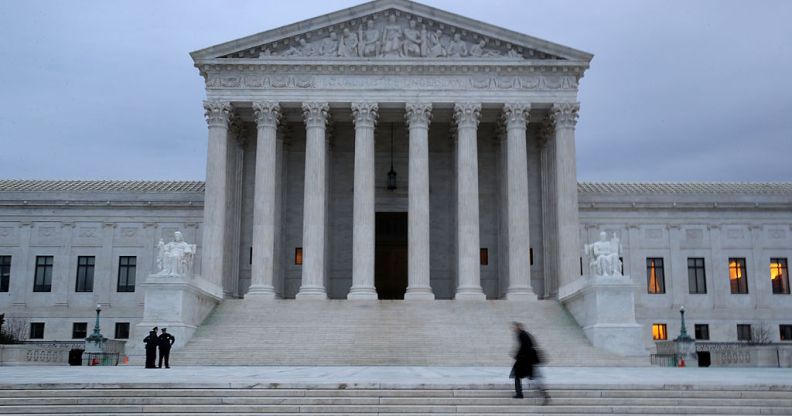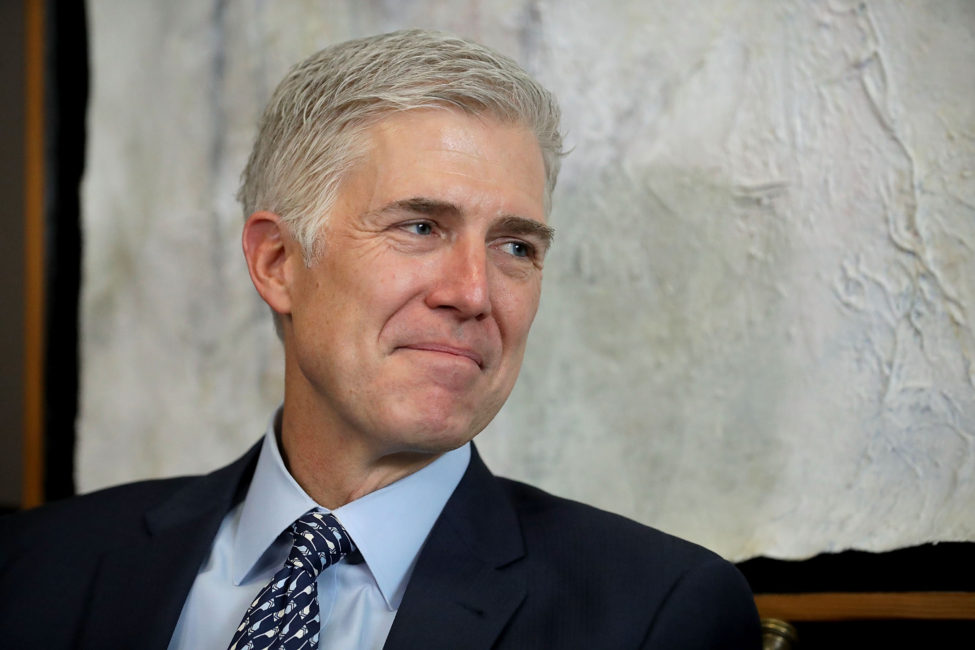Transgender people nearly left out of historic Supreme Court LGBT+ rights ruling, bombshell leak claims

The Supreme Court will decide the case (Mark Wilson/Getty Images)
Transgender people were nearly left out of the US Supreme Court ruling in favour of LGBT+ employment protections, according to a bombshell leak.
In June, the highest court in the US ruled that people are entitled to protection from discrimination based on sexual orientation and gender identity under Title VII, a Civil Rights Act provision that bars discrimination based on sex.
The 6-3 ruling saw conservative justices Neil Gorsuch and John Roberts join the court’s liberal justices in siding with two gay and one transgender woman, all of whom suffered discrimination at work.
Supreme Court nearly kicked transgender protections case into long grass.
But according to a rare leak inside the court to CNN, the ruling could have ended up very differently.
The outlet reports that in private discussions between the justices, there was an early agreement in favour on the cases of the two gay men, Gerald Bostock and Donald Zarda.
However, discussions about the case of Aimee Stephens, who was fired from a funeral home after coming out as trans, were much more raucous.

Conservative justice Neil Gorsuch sided with the liberals in the ruling (Photo by Chip Somodevilla/Getty Images)
According to CNN, some of the justices “raised concerns related to religious interests and shared bathrooms”, and questioned how to provide anti-bias coverage to transgender workers.
The outlet reports that some of the justices suggested affirming the rights of LGB employees but returning the Stephens case to a lower court for further hearings, kicking the issue of trans protections into the long grass.
Ultimately, the justices agreed to include both gender identity and sexual orientation. Liberal justice Elena Kagan is credited by CNN with winning over Roberts and Gorsuch over to the majority.
Questions linger over religious freedom and trans issues.
Although the landmark Supreme Court decision has been celebrated by LGBT+ activists, the opinion penned by Gorsuch sets up a future battle over whether religious freedom could provide an effective exemption from the discrimination protections.
He wrote: “Because [the Religious Freedom Restoration Act] operates as a kind of super statute, displacing the normal operation of other federal laws, it might supersede Title VII’s commands in appropriate cases. But how these doctrines protecting religious liberty interact with Title VII are questions for future cases.”
Gorsuch’s opinion also emphasised the narrowness of the ruling on trans issues, making clear: “Under Title VII, we do not purport to address bathrooms, locker rooms, or anything else of the kind. The only question before us is whether an employer who fires someone simply for being homosexual or transgender has discharged or otherwise discriminated against that individual ‘because of such individual’s sex’.”

